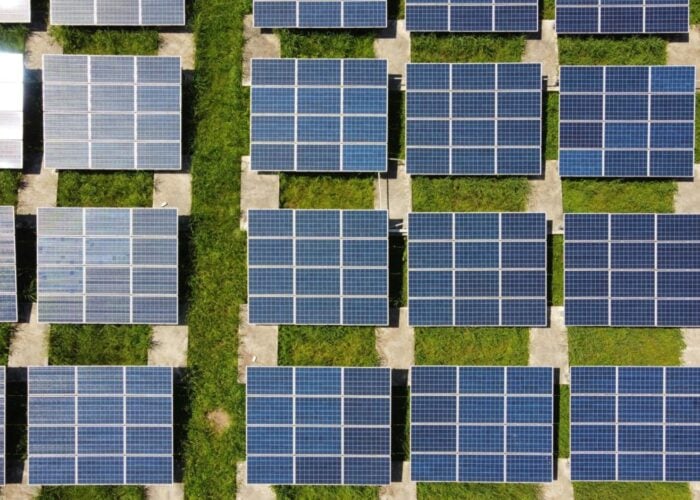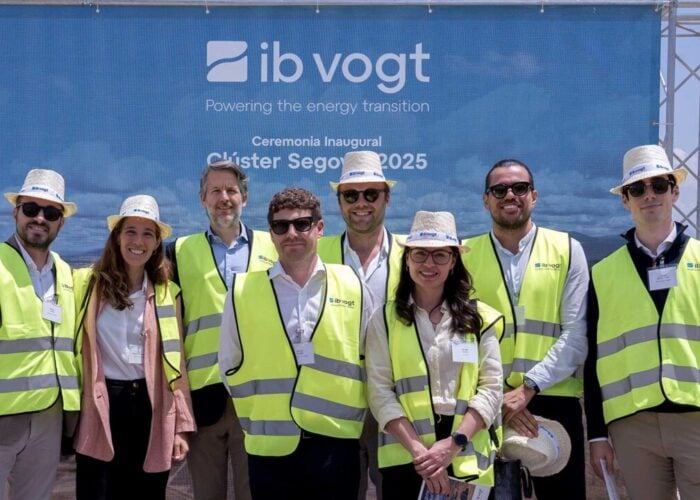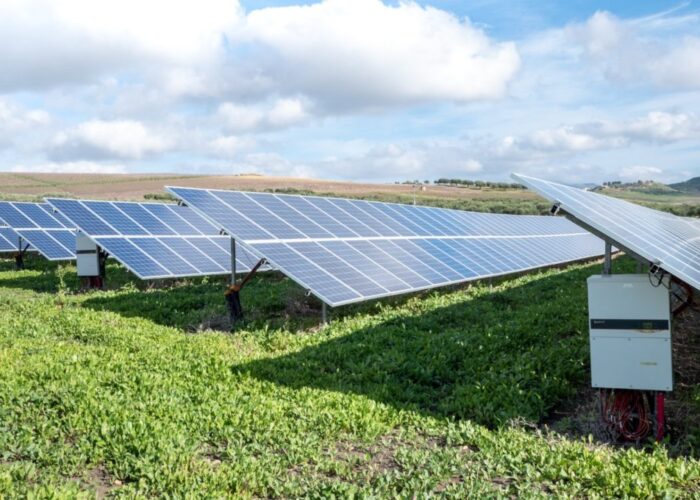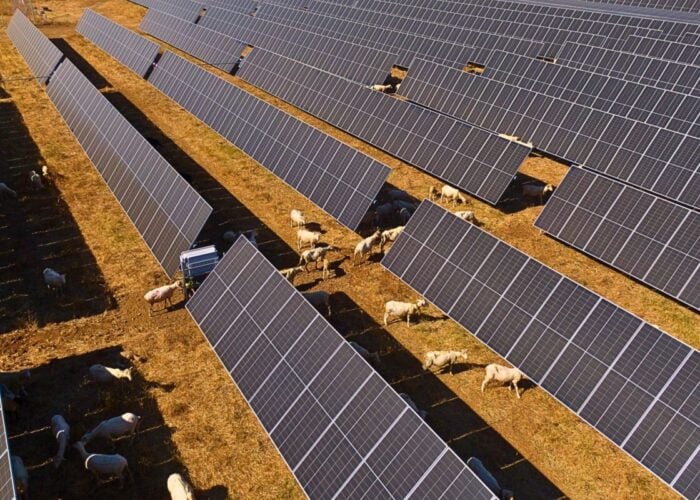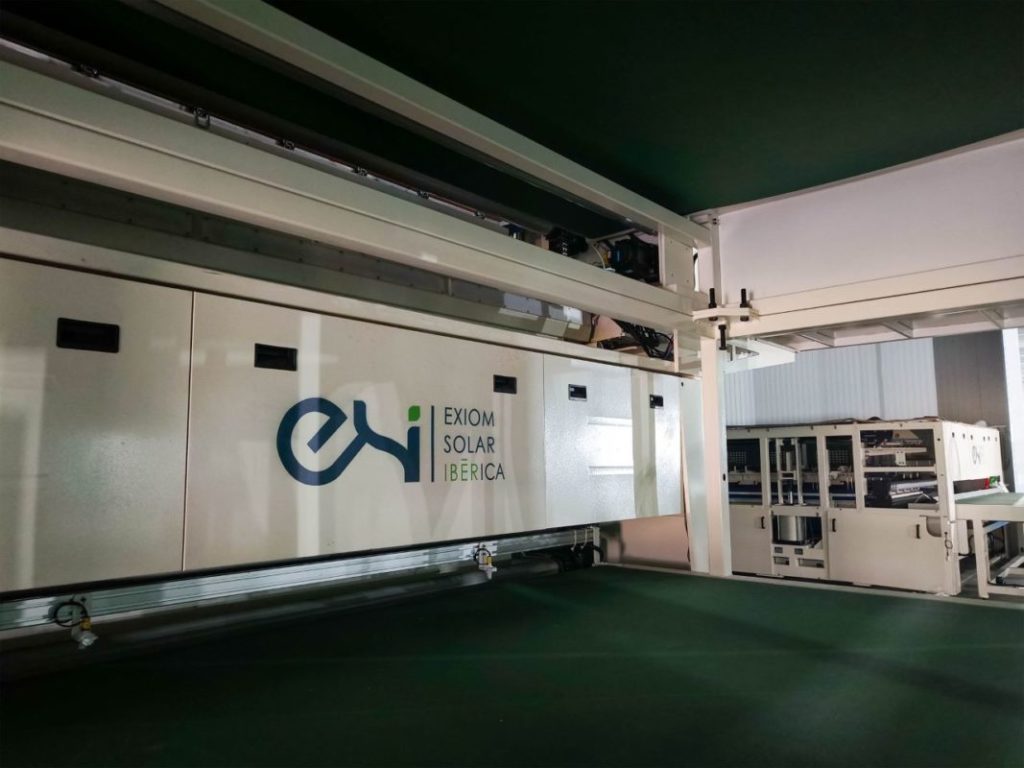
The Spanish Ministry of Ecological Transition (MITECO) has opened to public consultation a new incentive scheme for renewables and storage manufacturing.
The first round of the scheme will allocate over €750 million (US$811 million) based on the necessities outlined in the information gathered during the public consultation. The funds will be provided through Spain’s recovery and resilience plan (PRTR) and are aimed to incentivise the production of equipment and components for solar panels, batteries and electrolysers, among other technologies. According to MITECO, future rounds could add other aspects of the supply chain.
Unlock unlimited access for 12 whole months of distinctive global analysis
Photovoltaics International is now included.
- Regular insight and analysis of the industry’s biggest developments
- In-depth interviews with the industry’s leading figures
- Unlimited digital access to the PV Tech Power journal catalogue
- Unlimited digital access to the Photovoltaics International journal catalogue
- Access to more than 1,000 technical papers
- Discounts on Solar Media’s portfolio of events, in-person and virtual
One of the objectives of the scheme is to strengthen Spain’s domestic manufacturing and its strategic autonomy, as well as Europe’s. Teresa Ribera, the Spanish minister of ecological transition, said the goal is not just to change the colour of the molecules or electrons but also: “We want capital goods to be produced in Spain.”
The Institute for Energy Savings and Diversification (IDAE in Spanish) will overview the scheme and the financial aid, which would include both existing and new projects. For existing projects, this includes the expansion of the annual capacity by adding a new production line or improving existing lines with equipment not previously in use. However, only projects that have not been started prior to the auction will be accepted.
The public consultation is open until 15 March and more details can be accessed here (in Spanish).
Europe’s NZIA
Spain follows suit with the Netherlands which launched a subsidy aimed at solar module and battery manufacturing. In both cases, these schemes come at a time when the European solar manufacturing industry has been in a critical state, with many in the sector calling for emergency measures to protect European industry.
The announcement of both schemes, in Spain and the Netherlands, comes only weeks after the European Parliament and the EU Council agreed on new regulations to boost the region’s solar manufacturing industry with the Net Zero Industry Act (NZIA).
Full details of the NZIA are yet to be disclosed, but among the criteria implemented is a 50% quota on solar capacity auctioned by member states for which modules can be sourced from a single country per year.
One of the manufacturing projects expected to soon be operational in Spain is the 500MW tunnel oxide passivated contact (TOPCon) module assembly plant from Spanish utility Iberdrola and Spanish solar PV manufacturer Exiom, which started receiving equipment back in October. In a LinkedIn post last week, Exiom announced it expected the plant to be operational in the Spring. It will be located in the northeastern Spanish region of Asturias.
As countries aim to incentivise domestic manufacturing and attract companies to build capacity, in Germany, Swiss solar manufacturer Meyer Burger called for an emergency meeting to approve final funding for its US manufacturing plants, as the company looks to move its operations from Germany to the US and close down the module assembly plant in Germany.
Several companies, including rooftop installer Enpal and energy startup 1Komma5° have offered to take on Meyer Burger’s module production in Freiberg, Saxony.
| PV Tech publisher Solar Media will be organising the PV CellTech 2024 Conference in Frankfurt, Germany during 12-13 March 2024. The event takes place for the first time in Frankfurt and will be looking at the competing technologies – including heterojunction and tunnel oxide passivated contact (TOPCon) – and roadmaps for PV cell mass production during 2024-2026. See the official site for more details. |

